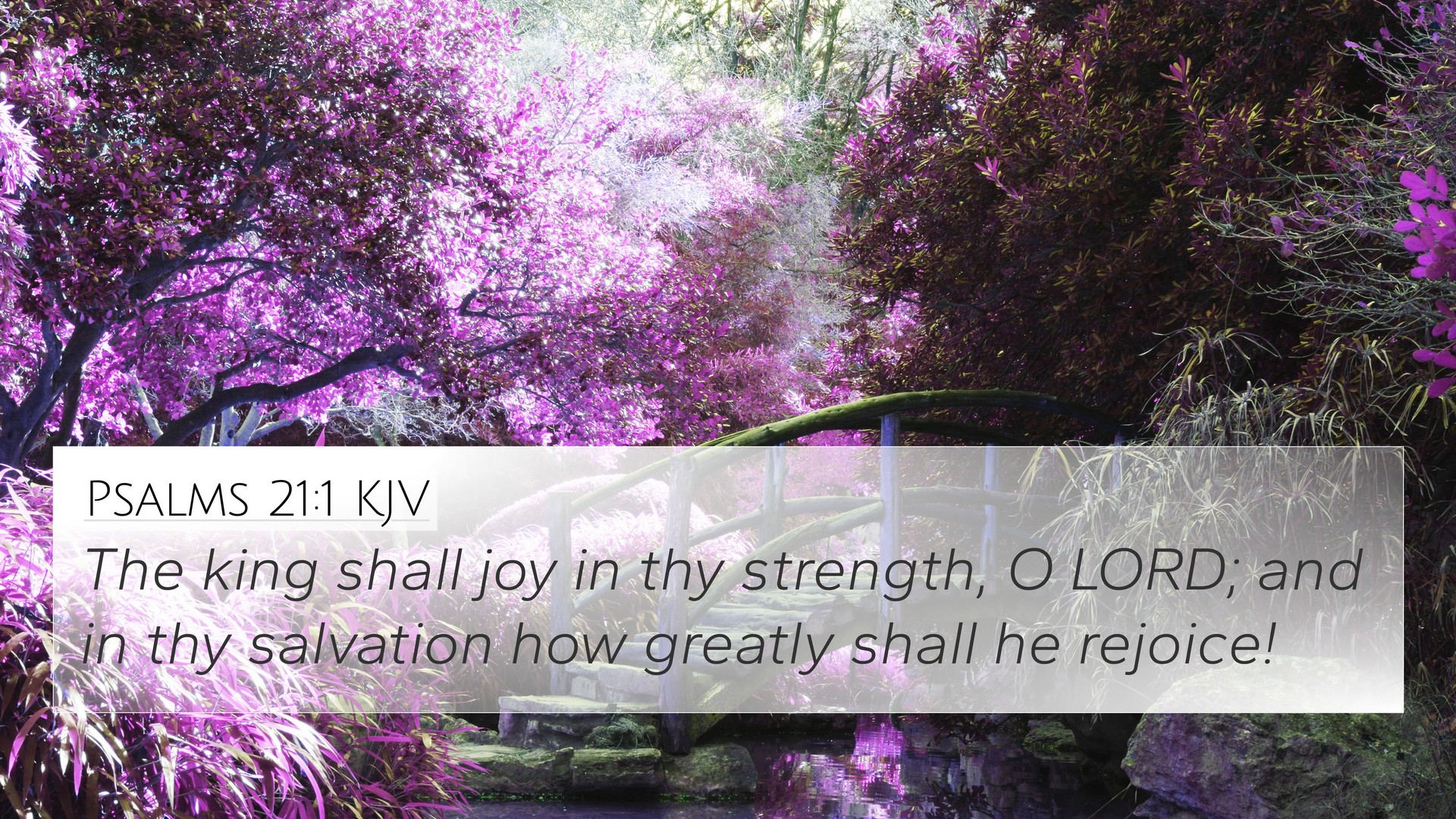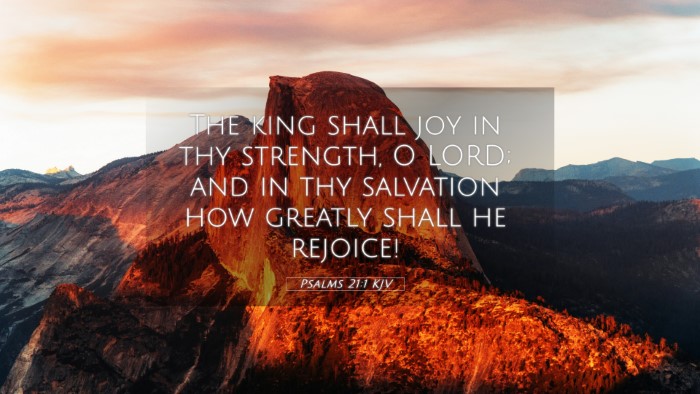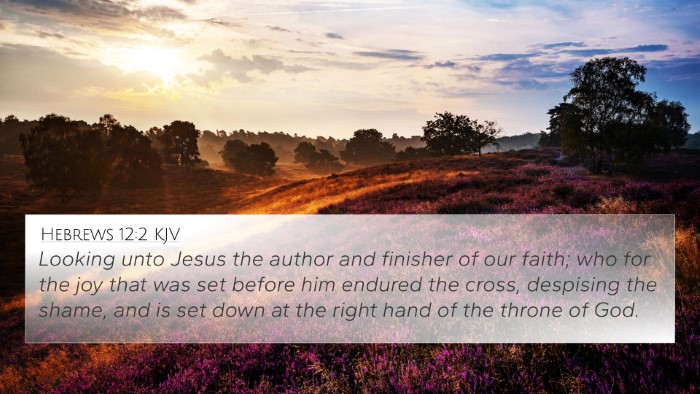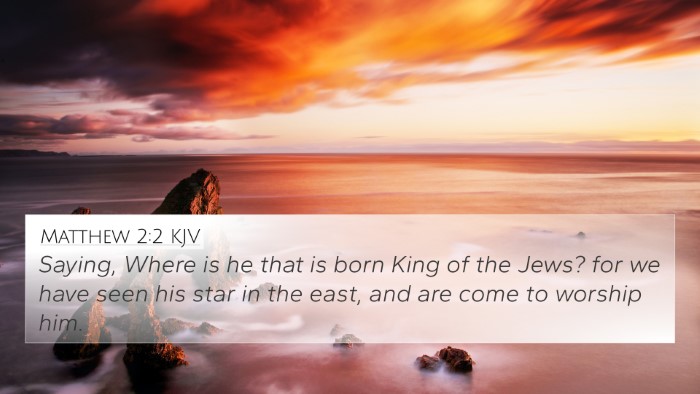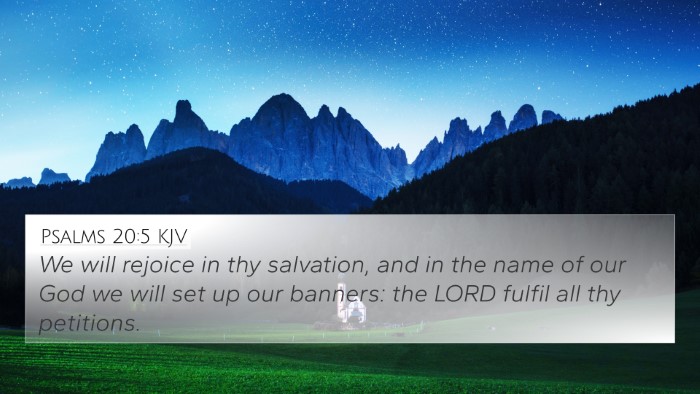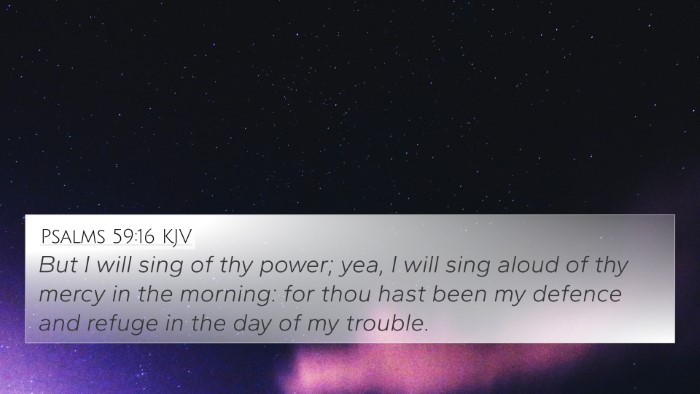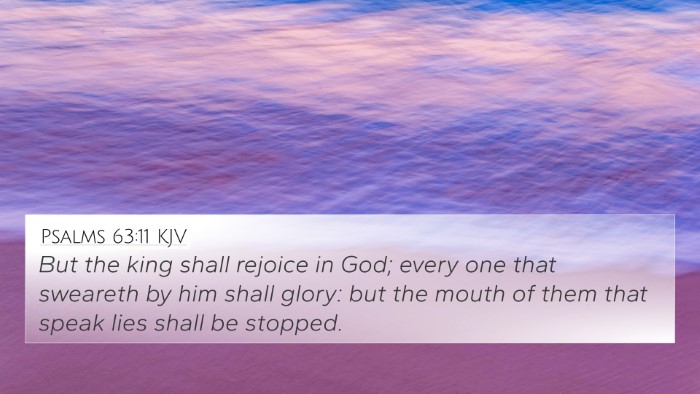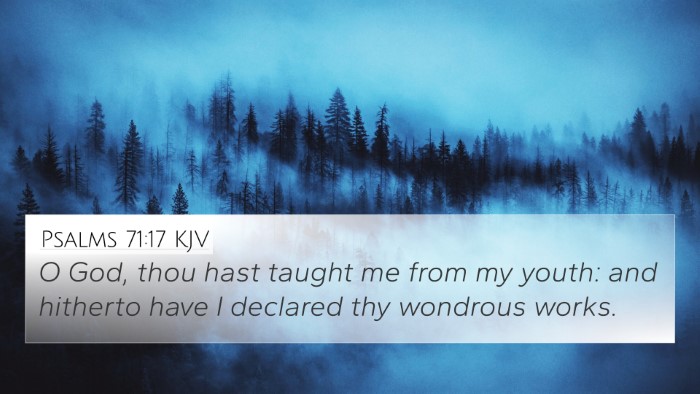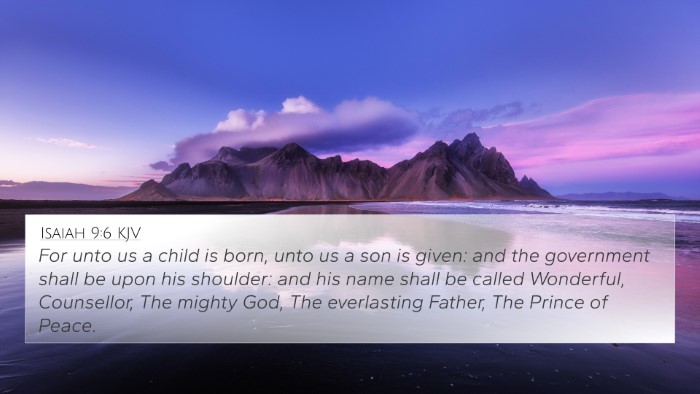Understanding Psalms 21:1
Psalms 21:1 states, "The king shall joy in thy strength, O LORD; and in thy salvation how greatly shall he rejoice."
This verse encapsulates the themes of divine strength and salvation, emphasizing the relationship between the sovereignty of God and the joy of His people, particularly the king. The verse serves as both a declaration and a prayer, revealing profound spiritual truths that resonate throughout Scripture.
Verse Analysis and Commentary
Numerous public domain commentaries shed light on this verse's meaning and implications:
- Matthew Henry: Henry notes that the joy of the king comes not just from his power but from the recognition of God’s strength. He points out that this verse highlights a king who is deeply connected to God, relying on divine assistance.
- Albert Barnes: Barnes emphasizes that the king’s joy stems from the deliverance provided by God. He observes the importance of salvation, indicating that true happiness comes from the acknowledgment of God’s saving grace and power, which strengthens and upholds leaders and nations.
- Adam Clarke: Clarke interprets this verse with a focus on the celebratory aspects of God's provision for the king. He also highlights that this joy is contingent on recognizing God as the source of power and salvation, which aligns with themes present in earlier passages of the Psalms.
Thematic Connections
The joy expressed in Psalms 21:1 is central to understanding the broader biblical narrative regarding leadership and divine favor. Below are some significant themes connected with this verse:
- The relationship between divine strength and joy in leadership.
- The role of salvation as a source of confidence for rulers and nations.
- Recognition of God’s sovereignty among the people.
Bible Verse Cross-References
To deepen understanding, it is beneficial to examine cross-referenced verses that highlight similar themes:
- Psalm 20:6 - "Now know I that the LORD saveth his anointed; he will hear him from his holy heaven with the saving strength of his right hand."
- Psalm 28:7 - "The LORD is my strength and my shield; my heart trusted in him, and I am helped; therefore my heart greatly rejoiceth; and with my song will I praise him."
- Psalm 3:8 - "Salvation belongeth unto the LORD: thy blessing is upon thy people."
- Philippians 4:13 - "I can do all things through Christ which strengtheneth me."
- Isaiah 12:2 - "Behold, God is my salvation; I will trust, and not be afraid; for the LORD JEHOVAH is my strength and my song; he also is become my salvation."
- Psalm 31:7 - "I will be glad and rejoice in thy mercy: for thou hast considered my trouble; thou hast known my soul in adversities."
- Isaiah 43:2 - "When thou passest through the waters, I will be with thee; and through the rivers, they shall not overflow thee: when thou walkest through the fire, thou shalt not be burned; neither shall the flame kindle upon thee."
- John 16:33 - "These things I have spoken unto you, that in me ye might have peace. In the world ye shall have tribulation: but be of good cheer; I have overcome the world."
- Jeremiah 17:7 - "Blessed is the man that trusteth in the LORD, and whose hope the LORD is."
- Psalm 149:4 - "For the LORD taketh pleasure in his people: he will beautify the meek with salvation."
Exploring Inter-Biblical Dialogue
The connections between Psalms 21:1 and other scriptures illustrate an ongoing dialogue in the Bible about reliance on God for strength and salvation. This conversation spans both the Old and New Testaments, emphasizing how leaders must anchor themselves in God's might.
Cross-Referencing Biblical Texts is essential for uncovering these ties. Utilizing tools for Bible cross-referencing can aid in identifying relationships between verses, enhancing the study and understanding of scripture as a cohesive unit.
The systematic organization of scriptural references allows believers and scholars to map out thematic connections, leading to a richer comprehension of how each verse reflects the character of God and His interaction with humanity.
Utilizing Cross-Reference Systems
To effectively utilize biblical cross-reference systems, one may consider the following:
- Study Tools: Employ a bible concordance or bible cross-reference guide to locate related scriptures.
- Comparative Analysis: Engage in comparative Bible verse analysis by examining similarities and differences in context and meaning.
- Thematic Studies: Complete a cross-referenced theme study by grouping verses according to shared concepts or theological themes.
- Sermon Preparation: Pastors and teachers can utilize bible cross-references for sermon preparation to draw comprehensive messages from multiple scriptures.
Conclusion
Psalms 21:1 serves as a poignant reminder of the importance of recognizing divine strength and salvation. The king’s joy is not isolated but reflects a broader biblical narrative that includes the interplay of human leadership and divine authority. Heartened by this understanding, believers are encouraged to find assurance in God’s unwavering support.
